Kidney Transplant in Iran: Kidney Implants
In Iran, kidney transplants are advancing medical frontiers. Renowned for successful kidney implants, Iran prioritizes organ donation, ensuring life-changing Kidney Transplants. The country’s medical prowess, particularly in Kidney Transplants, attracts global attention. With cutting-edge technology, Iran’s Kidney Transplant procedures yield remarkable success rates.
The compassionate approach to Kidney Transplant surgery and robust postoperative care distinguish Iran’s healthcare system. Patients undergoing Kidney Transplants in Iran benefit from skilled medical professionals and state-of-the-art facilities. Iran’s commitment to Kidney Transplants extends to efficient organ procurement and transplantation processes. The accessibility and quality of Kidney Transplant services contribute to Iran’s prominence in the global medical community.
What is the success rate of a kidney transplant? What is the kidney transplant procedure? How much does a kidney transplant cost in Iran? What are the complications of a kidney transplant? What characteristics should a kidney transplant donor have? What is the maximum life expectancy after a kidney transplant? How do you feel after kidney transplant? What are the disadvantages of a kidney transplant? Stay with us to answer these and more questions in the rest of this article.
What is a kidney transplant?
A kidney transplant, or kidney implants, entails surgically inserting a healthy kidney from a living or deceased donor into a recipient facing kidney failure.
This procedure restores kidney function, reducing or eliminating the need for dialysis and enhancing overall well-being. Individuals with end-stage renal disease benefit from this life-saving intervention, gaining an opportunity for a more active and normal life. The transplanted kidney filters waste and excess fluids, facilitating improved health for the recipient.
Iran excels in kidney transplant procedures, drawing global recognition for its medical expertise and commitment to advancing healthcare. State-of-the-art facilities and skilled professionals contribute to Iran’s prominence in the field of kidney transplants, making it a sought-after destination for those in need of this critical intervention.
How is kidney transplant surgery performed?
During kidney transplant surgery, a healthy kidney is surgically placed into a recipient with kidney failure. The procedure involves making an incision, typically in the lower abdomen, to access the recipient’s damaged kidneys. The renal artery and vein of the new kidney are connected to the recipient’s blood vessels, and the ureter is attached to the bladder.
The surgery is meticulous, ensuring proper blood flow and urine drainage from the transplanted kidney. In living donor transplants, the donor’s kidney is extracted through a similar procedure.
Post-surgery, recipients are closely monitored for complications, and immunosuppressive medications are administered to prevent rejection. The success of kidney transplant surgery depends on factors such as donor compatibility, surgical skill, and postoperative care.
Two videos of kidney transplant surgery
What characteristics should a kidney transplant donor have?
Ideal characteristics for a kidney transplant donor include:
- Blood Type Compatibility: A compatible blood type with the recipient to reduce the risk of rejection.
- Tissue Compatibility: Matching tissue antigens increases the likelihood of a successful transplant.
- Good Health: Donors should be in overall good health to minimize risks associated with surgery.
- No Chronic Diseases: Absence of chronic conditions that could affect the donor’s long-term health.
- Willingness to Donate: Voluntary and informed consent from the donor is essential for ethical reasons.
- Psychological Evaluation: Donors undergo psychological assessments to ensure they understand the implications and are mentally prepared.
- Age: While there isn’t a strict age limit, younger donors often have better outcomes.
- No Infectious Diseases: Absence of infectious diseases that could pose risks to the recipient.
Who are eligible for kidney transplant in Iran?
Eligibility for transplant in Iran depends on various factors. Generally, candidates include individuals with end-stage renal disease (ESRD) for whom kidney function has significantly declined. Criteria may include good overall health, absence of certain medical conditions, and a commitment to post-transplant care.
Living donors undergo rigorous evaluations to ensure compatibility and optimal health. Patients with conditions affecting successful transplantation may be deemed ineligible.
Iran prioritizes accessibility to kidney transplants, offering this life-saving procedure to both Iranian and international patients, contributing to its reputation as a leading destination for renal care.
Who does not qualify for a kidney transplant in Iran?
In Iran, individuals may not qualify for a kidney transplant under certain circumstances, including:
Medical Ineligibility: Severe medical conditions that pose a high risk for surgery or complications may disqualify a candidate.
Active Infections: Ongoing infections may postpone transplantation until the infection is treated and controlled.
Severe Cardiovascular Disease: Uncontrolled heart conditions may increase surgical risks and affect eligibility.
Active Substance Abuse: Individuals with ongoing substance abuse issues may be ineligible due to concerns about post-transplant adherence and success.
The best kidney transplant doctors in Iran
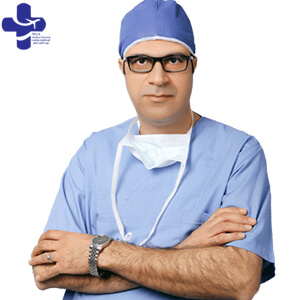
Dr. Farshad Namdari
Kidney, urinary tract and genital surgery specialty (urology) Kidney transplant fellowship Kidney transplant fellowship Tehran

Dr. Shahrukh Ezzatzadegan Jahromi
adult kidney specialist (adult nephrology) Kidney transplant fellowship Shiraz

Dr. Dariush Mansouri
Kidney, urinary tract and genital surgery specialty (urology) Kidney transplant fellowship Shiraz
What are the criteria for a kidney transplant?
Criteria for kidney transplant include:
End-Stage Renal Disease (ESRD)
Severe kidney dysfunction where other treatments like dialysis are no longer sufficient.
Good General Health
Overall well-being to withstand the surgical procedure and recovery.
Absence of Severe Medical Conditions:
Certain medical conditions may impact transplant eligibility.
Psychological Evaluation
Mental and emotional readiness for the transplant process.
Blood Type Compatibility
A compatible blood type between the donor and recipient.
Tissue Compatibility
Matching tissue antigens to enhance transplant success.
Willing and Informed Consent
Voluntary agreement from the recipient after understanding the risks and benefits.
Ability to Adhere to Medications
Commitment to lifelong immunosuppressive medications to prevent rejection.
Individuals are assessed based on these criteria to determine eligibility for a kidney transplant.
How to prepare for kidney transplant surgery in Iran?
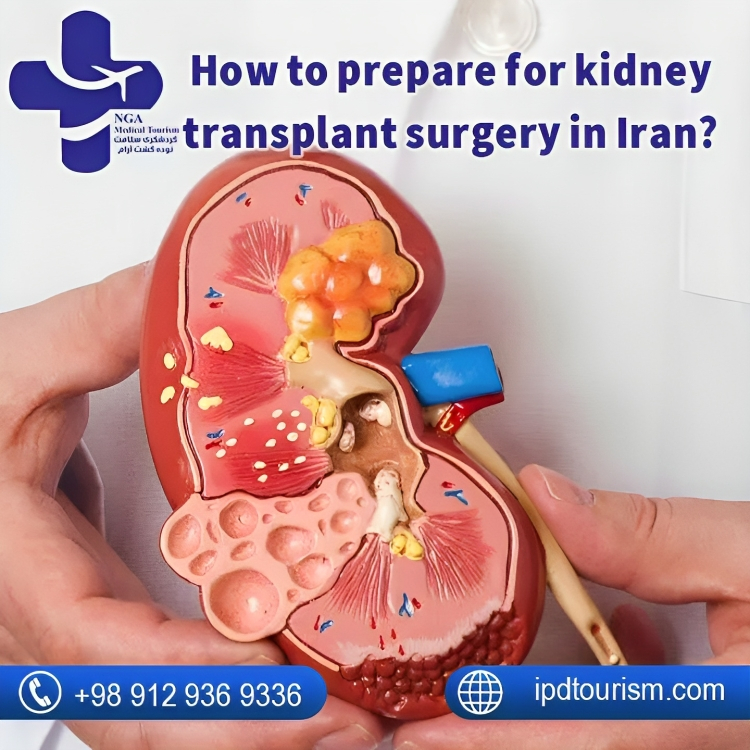
Preparing for kidney transplant surgery in Iran involves several steps:
- Medical Evaluation: Undergo thorough medical assessments to determine eligibility. Tests assess overall health, organ function, and compatibility with potential donors.
- Living Donor Evaluation: If considering a living donor transplant, the donor undergoes evaluations to ensure compatibility and assess overall health.
- Immunosuppressive Medications: Understand the necessity of lifelong immunosuppressive medications post-transplant to prevent rejection. Discuss potential side effects and adherence.
- Psychological Evaluation: Assess mental and emotional readiness for the procedure and post-transplant adjustments.
- Financial Considerations: Review the cost of the procedure, potential insurance coverage, and make financial arrangements.
- Travel and Accommodation: Plan for travel and stay in Iran. Consider logistical aspects, such as accommodation near the medical facility.
- Support System: Build a support network for emotional and practical assistance during the transplant process.
- Preoperative Instructions: Follow preoperative guidelines provided by the medical team, including fasting and medication adjustments.
- Legal and Ethical Considerations: Understand and comply with legal and ethical aspects of organ transplantation in Iran.
- Communication with Medical Team: Maintain open communication with the medical team, addressing any concerns or questions.
My experience of kidney transplant in Iran
How long does kidney transplant surgery take?
Kidney transplant surgery typically takes around 3 to 4 hours. The duration may vary depending on factors such as the complexity of the procedure, the surgeon’s experience, and whether it involves a living or deceased donor. Living donor transplants often have a shorter ischemic time (time without blood flow to the organ), contributing to a faster surgery.
After the surgery, patients are monitored closely in the recovery room before being transferred to a transplant recovery unit. The overall hospital stay can range from several days to a week, and the postoperative recovery period varies for each individual.
kidney transplant healing time
Signs of recovery after kidney transplantation include:
- Stable Vital Signs: Normalization of blood pressure, heart rate, and breathing.
- Urine Production: Adequate and improving urine output indicates proper kidney function.
- Pain Management: Gradual reduction in postoperative pain and discomfort.
- Wound Healing: Observation of healing incisions and absence of signs of infection.
- Stable Laboratory Results: Monitoring of blood tests to ensure proper kidney function and absence of complications.
- Weaning off Ventilator (if applicable): Successful transition from ventilator support, if used during surgery.
- Mobility: Gradual improvement in mobility and ability to perform daily activities.
- Normalization of Medications: Adjustment and stabilization of immunosuppressive medications.
- Appetite and Digestion: Return of appetite and normal digestion.
Regular follow-up appointments with the transplant team are essential to monitor long-term recovery, address concerns, and adjust medications as needed. Overall, a successful recovery involves a combination of medical care, adherence to post-transplant guidelines, and emotional support.
The Advantages of Living Donor Kidney Transplant
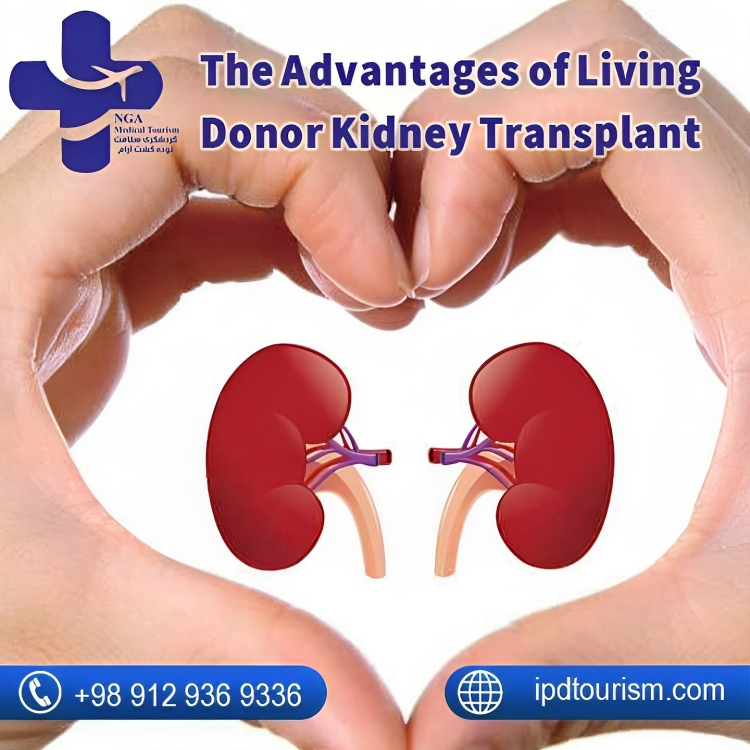
The Advantages of Living Donor Kidney Transplant
- Enhanced Compatibility: Living donor kidney transplants often offer a closer match, reducing the risk of rejection.
- Optimal Timing: Living donor transplants allow for planned surgeries, optimizing timing for both donor and recipient.
- Improved Outcomes: The immediate transplantation from a living donor can lead to better organ function and overall outcomes.
- Reduced Waiting Time: Living donor transplants eliminate the need to wait on organ transplant lists, potentially saving crucial time.
- Preemptive Transplants: Living donor options enable preemptive transplants, addressing kidney failure before initiating dialysis.
- Longer Graft Survival: Living donor kidneys may have a longer lifespan compared to kidneys from deceased donors.
What is the success rate of kidney transplantation in Iran?
A kidney transplant success rate of around 95% in the first year is indeed a promising statistic. It indicates that a significant majority of recipients in Iran experience positive outcomes and maintain proper kidney function during the initial post-transplant period. However, long-term success depends on various factors, including adherence to medication, lifestyle, and overall health.
What is the maximum life expectancy after a kidney transplant?
Deceased donor kidney transplants extend life expectancy by 30 years, as the recipient receives a vital organ from someone who is brain-dead. The remarkable aspect lies in the fact that living donor kidney transplants surpass this, elevating life expectancy by an impressive 40 years.
The best kidney transplant hospitals in Iran
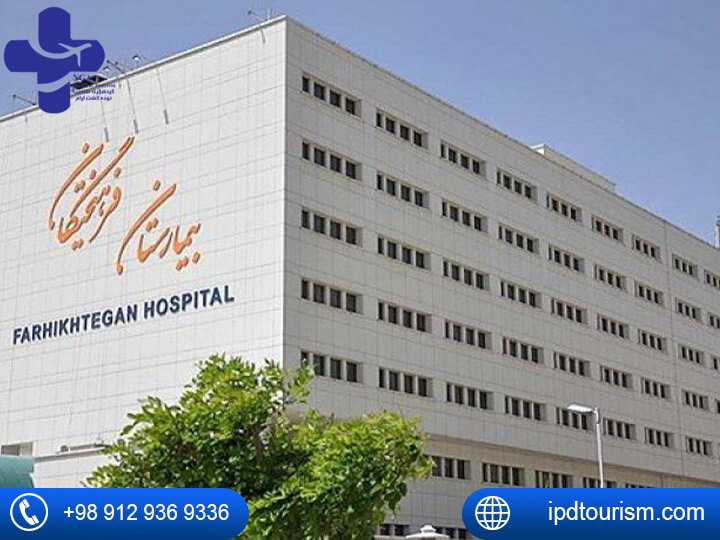
Farhihtegan Hospital
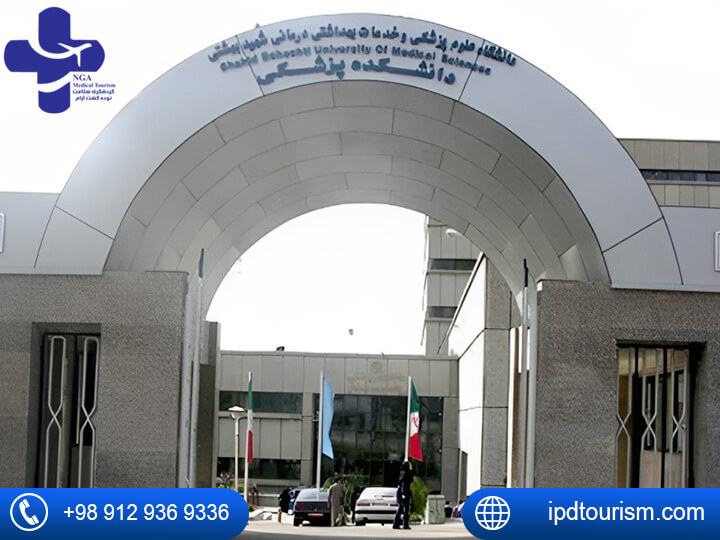
Shahid Beheshti Hospital
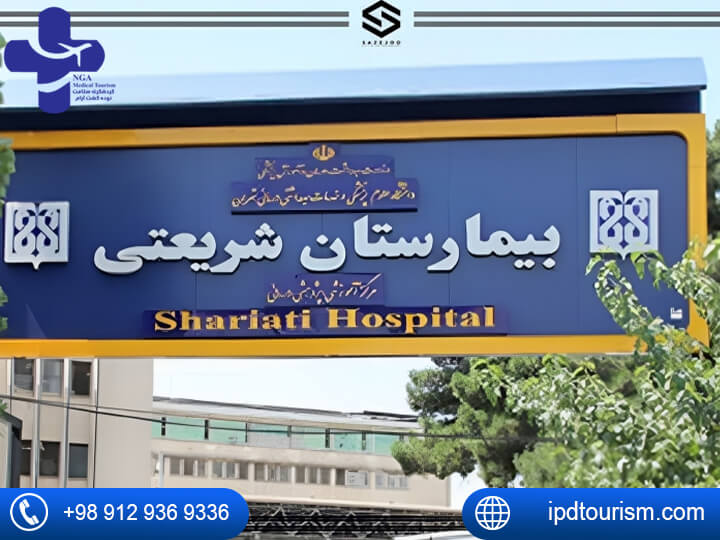
Shariati Hospital
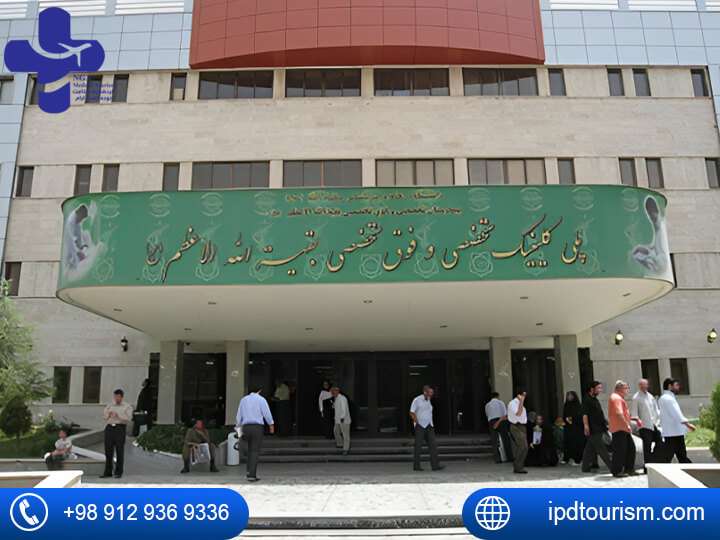
Baqiyallah Al-Azam Hospital
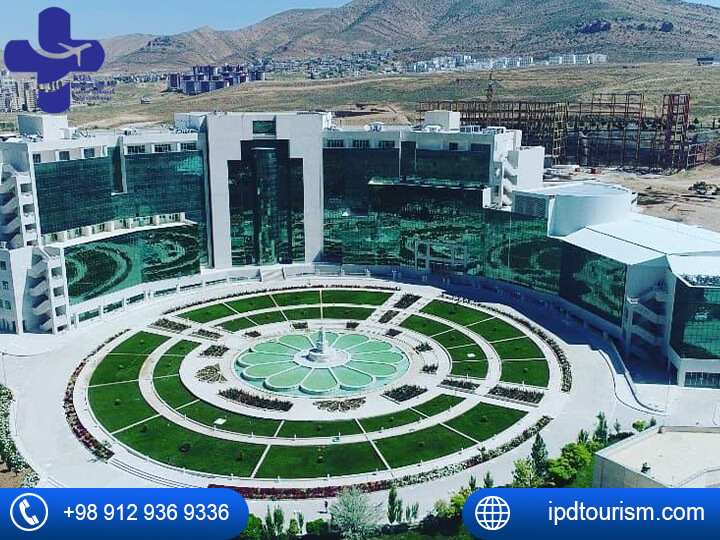
Shiraz Bo Ali Hospital
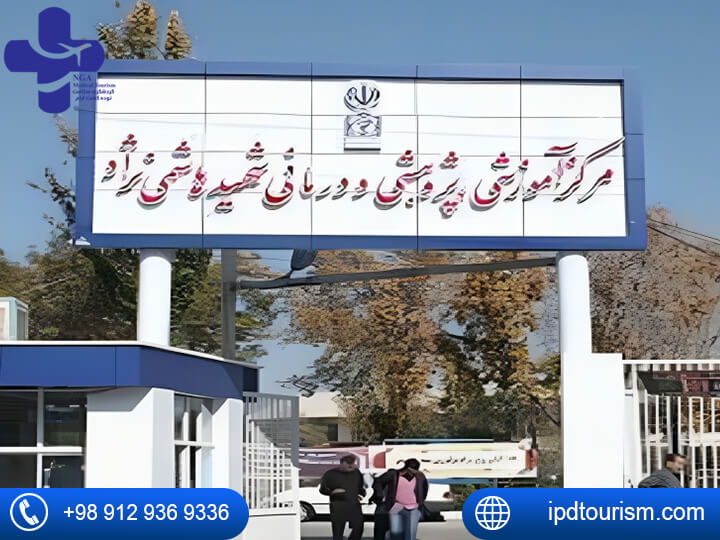
Shahid Hashminejad Hospital
What are the complications of a kidney transplant?
Complications of a kidney transplant can include:
- Rejection
- Infection
- Side Effects of Medications
- Delayed Graft Function
- Surgical Complications
- Urinary Complications
- Cardiovascular Issues
- Metabolic Issues
- Cancer Risk
What are the disadvantages of a kidney transplant?
Disadvantages of kidney transplant include:
- Risk of Rejection
- Immunosuppressive Medications
- Surgery Risks
- Postoperative Pain
- Financial Costs
- Limited Organ Availability
- Potential Long-Term Health Risks
- Psychological Challenges
Despite these disadvantages, transplant is a life-saving intervention, and advancements in medical care have significantly improved outcomes and quality of life for many recipients.
Is a Kidney Replacement in Iran Worth It?
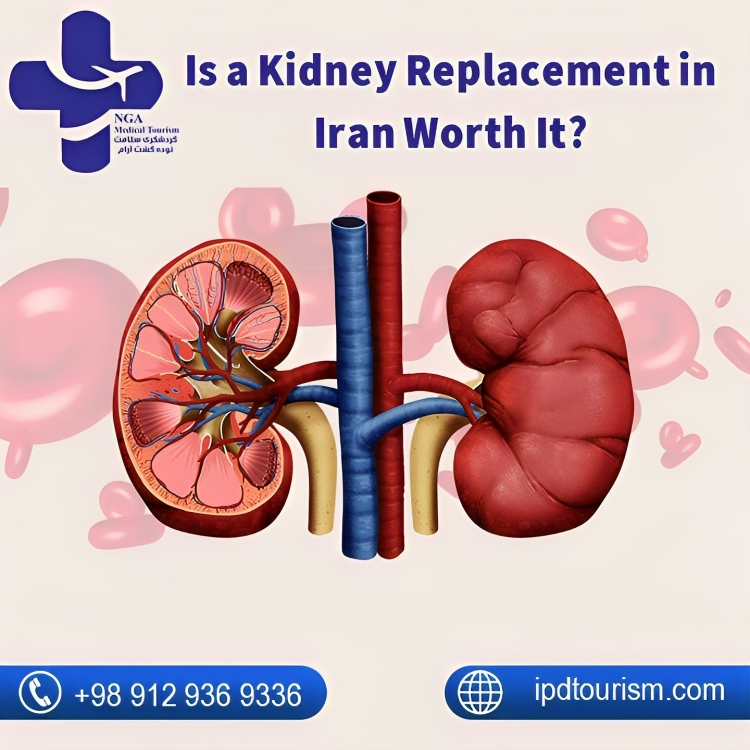
Iran’s transplant success rates, coupled with minimized risks of rejection and complications, contribute to its reputation as a favorable destination for kidney transplants. The country’s emphasis on advanced medical procedures, skilled professionals, and a well-regulated organ transplant system enhances the overall success and safety of the procedure.
Moreover, the affordability of kidney transplants in Iran compared to some other countries makes it an attractive option for individuals seeking cost-effective yet high-quality medical care. The combination of medical expertise, accessibility, and relatively lower costs establishes Iran as a compelling choice for those considering kidney transplantation
How much does a kidney transplant cost in Iran?
In Iran, the cost of a kidney transplant ranges from $13,000 to $14,000, and it varies based on different factors. These factors may include the type of transplant (living or deceased donor), preoperative assessments, postoperative care, and medications.
What are the symptoms of kidney transplant rejection and how can it be prevented?
Symptoms of kidney replacement rejection may include:
- Fever
- Decreased urine output
- Swelling or tenderness around the transplant site
- Weight gain
- High blood pressure
- Pain or discomfort over the kidney area
- Flu-like symptoms
How long is the hospitalization period for a kidney transplant in Iran?
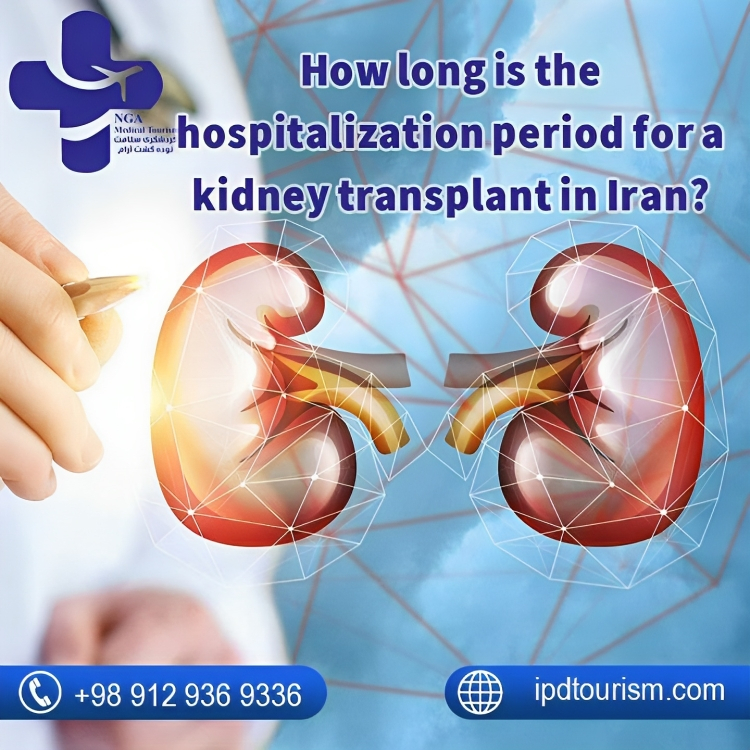
The hospitalization period for a kidney transplant in Iran typically ranges from several days to a week. The exact duration can vary based on individual factors, including the overall health of the patient, the complexity of the surgery, and the rate of postoperative recovery. After the transplant surgery, patients are closely monitored in the hospital for signs of complications and to ensure that the transplanted kidney functions properly.
The medical team will determine the appropriate time for discharge based on the patient’s recovery progress and overall well-being. Post-discharge, patients will continue to receive follow-up care and monitoring as part of the ongoing transplant management plan.
What are the symptoms of kidney transplant rejection?
Symptoms of kidney transplant rejection may include:
- Fever
- Decreased urine output
- Swelling or tenderness around the transplant site
- Weight gain
- High blood pressure
- Pain or discomfort over the kidney area
- Flu-like symptoms
How to prevent transplant?
- Immunosuppressive Medications: Take prescribed medications as directed to suppress the immune system and prevent rejection.
- Regular Monitoring: Attend follow-up appointments to monitor kidney function and detect signs of rejection early.
- Healthy Lifestyle: Adopt a healthy lifestyle with a balanced diet, regular exercise, and avoidance of tobacco and excessive alcohol.
- Avoiding Infections: Minimize exposure to infections, as they can trigger rejection. Practice good hygiene and follow medical advice.
- Medication Adherence: Consistent adherence to prescribed medications is crucial for long-term success.
- Prompt Reporting: Report any unusual symptoms or changes in health to the transplant team promptly.
- Regular Testing: Undergo regular blood tests to assess kidney function and medication levels.
Belatacept in Kidney Transplantation
Belatacept is an immunosuppressive medication used in organ transplantation, particularly kidney transplants. It works by inhibiting T-cell activation, reducing the risk of rejection. This innovative drug offers an alternative to traditional immunosuppressants, with potential benefits for graft survival and long-term outcomes. As a key player in transplant medicine, belatacept continues to shape and improve strategies for immune system modulation, contributing to the advancement of organ transplant care.
conclusion
kidney transplants, like liver transplant in iran, are well-established medical procedures with increasing emphasis on the advances in transplant medicine. This country has skilled medical professionals, advanced facilities and organ transplant system. Accessibility and affordability help Iran stand out as a destination for people seeking kidney and liver transplants. The success rate and positive results emphasize the effectiveness of these methods and make Iran a significant pole of organ transplantation in the region.
FAQ:
Yes, exercise is generally recommended after a kidney transplant, but it’s important to consult with your healthcare team for personalized advice.
The exercise limitations after a kidney transplant may vary depending on individual factors, so it’s crucial to follow the guidance of your healthcare team.
The lifespan of a kidney transplant can vary, but on average, a well-functioning transplant can last 10 to 15 years or more.
Kidney transplant rejection is primarily caused by the recipient’s immune system recognizing the transplanted kidney as foreign and mounting an immune response against it.
If a transplanted kidney fails, dialysis may be necessary until another suitable kidney becomes available for transplantation.
If your doctor determines that a kidney transplant is necessary, they will likely assess your eligibility and, if appropriate, place you on a kidney transplant waiting list.
Yes, it is possible to be placed on a kidney transplant waiting list before starting dialysis, depending on your specific medical condition and evaluation by the transplant team.
Eligibility for kidney transplant is determined on a case-by-case basis, but generally includes individuals with end-stage renal disease who meet certain medical, psychological, and lifestyle criteria.
A kidney transplant involves surgically replacing a failed kidney with a healthy kidney from a living or deceased donor, connecting the blood vessels and urinary tract.
Typically, the left or right kidney can be used for transplantation, depending on factors such as donor compatibility and organ quality.
Studies suggest that living kidney donation does not significantly impact the lifespan of the donor, but it’s essential to consider individual factors and undergo thorough medical evaluation and counseling.
On average, a well-functioning kidney transplant can provide a person with 10 to 15 years or more of improved quality of life, but individual outcomes can vary significantly.
There is no strict age limit for kidney transplant, as eligibility is assessed individually based on overall health and the ability to withstand the procedure and post-transplant care.
In general, individuals with one healthy kidney can live a normal lifespan without any significant impact on their life expectancy.
Kidney transplantation is a major surgical procedure with potential risks, but it can significantly improve quality of life for individuals with end-stage renal disease, making it an important treatment option.
For many individuals with end-stage renal disease, kidney transplant offers a better long-term outcome and improved quality of life compared to long-term dialysis, but it depends on individual circumstances and factors.
Donating a kidney involves surgical procedures, and while pain is managed with medication, discomfort and recovery time are expected, varying from person to person.
Kidney transplant is generally considered a better long-term treatment option than dialysis due to improved quality of life, but the suitability depends on individual factors and circumstances.
To find a suitable donor for a kidney transplant, you can explore options such as deceased donor transplant programs, living donor evaluation, reaching out to family and friends, or registering with national organ transplant registries, while your transplant center can provide guidance and assistance in the process.
The average life expectancy of a transplanted kidney is around 10 to 15 years, but with proper care and management, it can last significantly longer.
Under certain circumstances, a kidney transplant from a donor with underlying diseases like diabetes may be possible, but careful evaluation is necessary to assess compatibility and potential risks.
Iran is known for its unique system of compensated organ donation, which has made it more feasible for individuals with end-stage renal disease to receive kidney transplants, helping to address the shortage of organs available for transplantation.
Several factors contribute to the success rate of a kidney transplant, including the compatibility between the donor and recipient, adequacy of immunosuppressive medications, post-transplant care, and overall health of the recipient.
After a kidney transplant surgery, the medical team will closely monitor your progress through various tests and examinations to assess the functioning of the transplanted kidney, and they will inform you about the success of the surgery based on these evaluations.
Yes, kidney transplants can be performed using kidneys from both younger and older donors, and the decision depends on factors like organ quality, compatibility, and the overall health of the recipient.
The time it takes to return to work after a kidney transplant surgery can vary depending on individual factors such as the type of work, the overall health of the recipient, and the progress of the recovery. It is best to consult with your healthcare team for specific guidance tailored to your situation.
Returning to your previous job after kidney transplant surgery is possible in many cases, but it depends on individual factors, including the nature of the job and your overall health.
Engaging in sports and physical activities after kidney transplant surgery is possible, but it is important to consult with your healthcare team for personalized guidance and recommendations based on your specific situation.
Specific disqualifications for a kidney transplant vary, but factors such as active cancer, severe heart disease, uncontrolled infections, and ongoing substance abuse may impact eligibility, among other individual considerations.



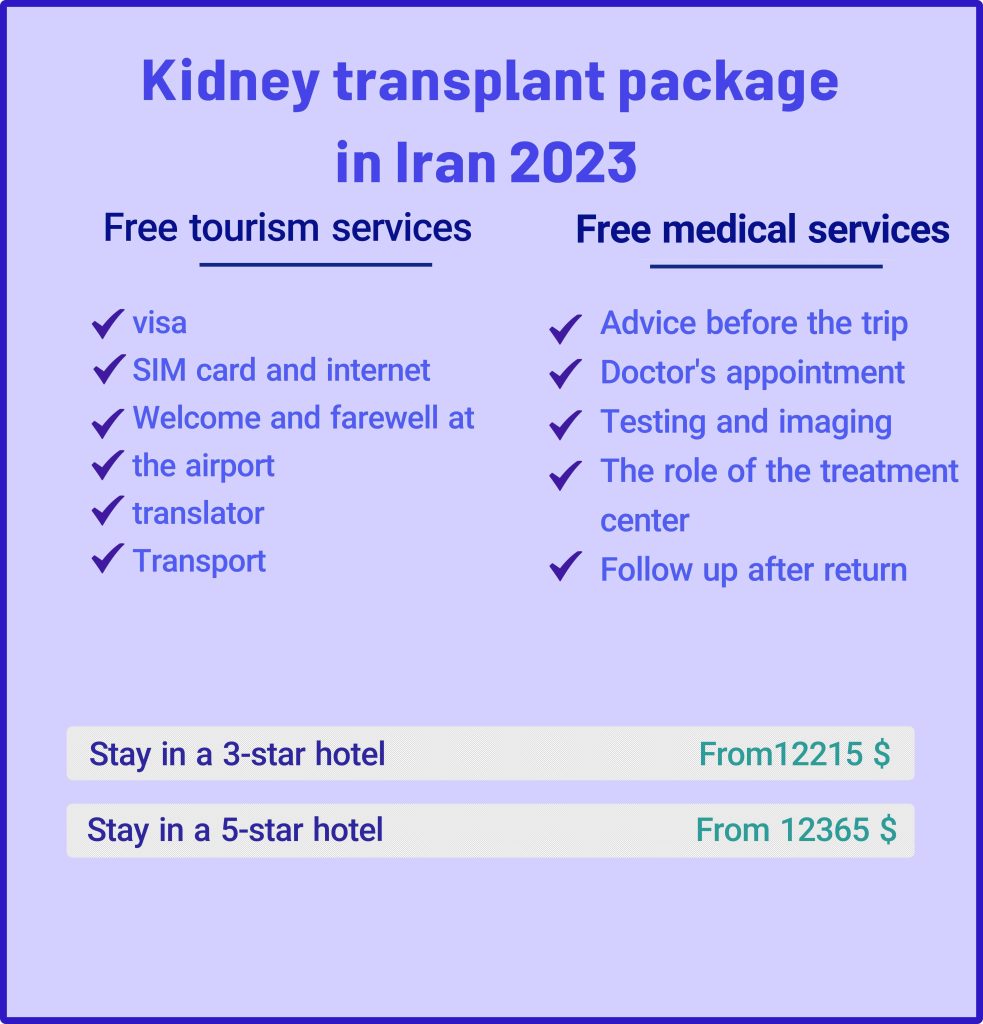

18 Comments